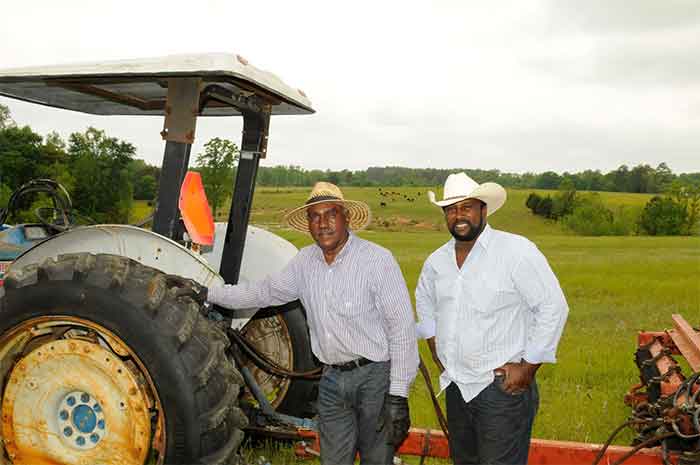
About a hundred years back there were about a million black, or African-American, farmers in the USA, today they have decreased to just around 45,000. This is one of the steepest declines suffered by any ethnic group anywhere in farming. Yet this has not received the attention that was deserved, and as a result remedial actions too have been neglected.
African-American farmers once comprised about 14 per cent of the total number of farmers in the USA, today they are down to just about 1.4 per cent. Black farmers have land holdings which are less than one-fourth of the average-size of land holdings. Hence their share of farmland owned is even less. The farmland owned by them is just 0.5%, relative to their share in population of over 13%. Almost 48% of the farms of black farmers are cattle and dairy farms, not proper agricultural farms.
The land lost by black farmer households in the USA during the 20th century has been valued at around 326 billion dollars. This estimate has been presented by lead author Dr. Dania Frances and co-authors in a paper published by the American Economic Association journal.
In comparison, very long drawn out legal cases relating to discriminatory practices against black farmers have resulted in these farmers receiving claims of less than 3 billion dollars. Apart from inheritance and land rights issues, black farmers have suffered from discriminatory practices of the US Department of Agriculture in matters relating to credit and technical assistance. At a less obvious level, black farmers also experience problems and discriminative behavior when it comes to marketing their produce.
To get some relief from such discrimination and provide more equal conditions for African-American farmers, Justice for Black Farmers Act is being considered now.
While this deserves support obviously, this will provide only limited relief by correcting some injustices and discriminations, particularly relating to certain practices prevailing in the US Department of Agriculture. This should be supported, but this cannot be considered adequate by itself and a wider agenda of reform should be considered.
The most important feature of the US farming scene in recent decades has been the growing domination by big business interests and the elimination of an increasing number of small farmers, including white farmers. According to official statistics provided by the Congressional Research Service paper titled ‘Racial Equality in US Farming’, the total number of farmers declined during the 20th century by 67% but the number of black farmers declined by a much higher percentage.
When the dominant trend is of increasing control of farmland by big business and reducing number of small farmers, inevitably black farmers, as the lowest resource farmers and the most vulnerable farmers who suffer in addition from discriminative practices, are likely to suffer more than others.
Hence while removing some existing discriminative practices by itself should no doubt be welcomed, the larger struggle must continue for reclaiming land rights by small family farms and by those who actually work on farmland, the real farmers, while farmland should be freed of control by big corporate and financial interests.
Bharat Dogra is Honorary Convener, Campaign to Save Earth Now. His recent books include Campaign to Save Earth Now. His recent books include India’s Quest for Sustainable Farming and Healthy Food, Protecting Earth for Children and A Day in 2071.











































